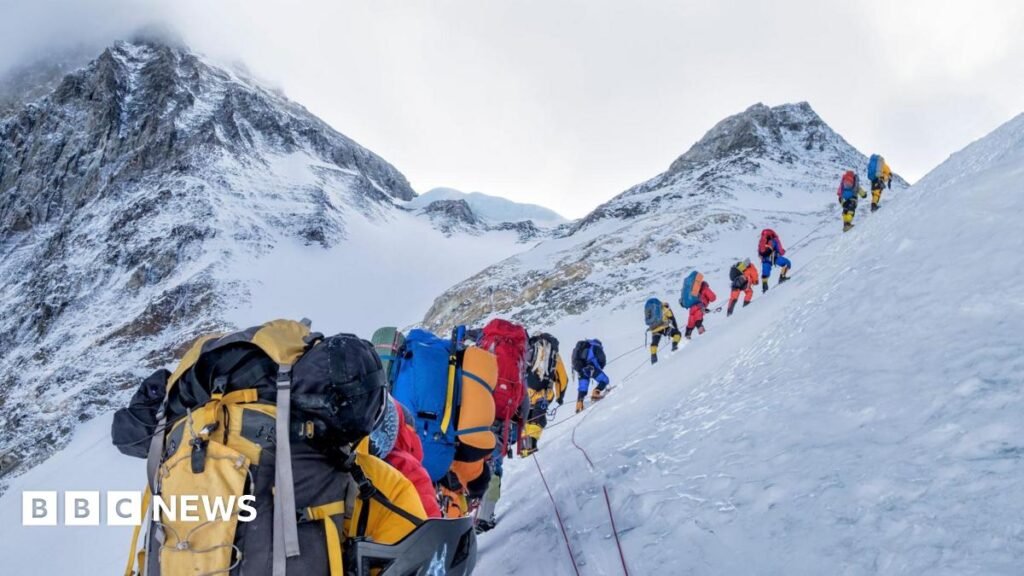Mountaineering experts often criticize the Nepalese government for allowing too many climbers to climb Everest, but around 300 permits are issued each year to climb the mountain.
It is not yet clear whether the price increase, which has been discussed since last year, will slow demand.
“The royalty (permit fee) has not been revised for a long time,” Narayan Prasad Regmi, director general of the tourism department, told Reuters. “We’ve updated them now.”
Regmi did not specify how the additional revenue would be used.
In April 2024, Nepal’s Supreme Court ordered the government to limit the number of mountaineering permits issued for Everest and other peaks, saying the power of the mountains “must be respected”.
However, the previous order did not specify the maximum number.
Amid concerns about overcrowding on Everest and climbers queuing in dangerous conditions to reach the summit, the Nepalese army in 2019 began an annual cleanup of the mountain, often described as the world’s highest garbage dump.
During that time, at least five cleanups have collected 119 tons of debris, 14 human corpses and several skeletons, according to the Army — but an estimated 200 more bodies remain on the mountain.
Nepal is home to eight of the world’s 14 highest mountains, including Mount Everest.

